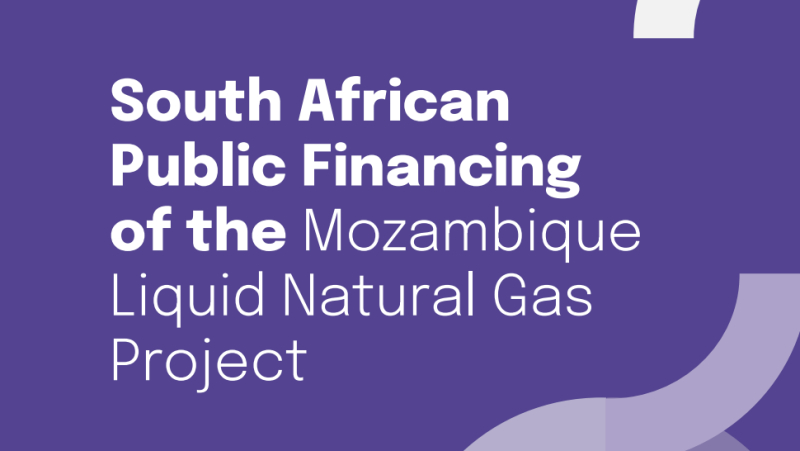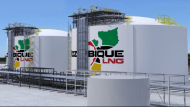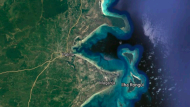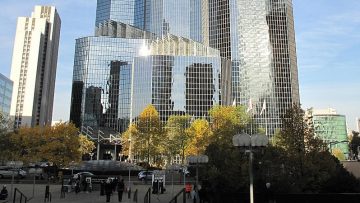Beggar thy neighbour: South African public financing of Mozambique fossil gas project
Boitumelo Masipa,
350Africa.org,
+27814529096

Boitumelo Masipa,
350Africa.org,
+27814529096
On Monday, 12th of February, members of the Fair Finance Coalition Southern Africa (FFCSA) launched a case study titled “South African Public Financing of the Mozambique Liquid Natural Gas Project”, which sheds light on the public financing behind TotalEnergies’ Mozambique Liquefied Natural Gas (LNG) Project. Undertaken between May and September 2023, the case study delves into the complexities and consequences of the LNG gas project in northern Mozambique, emphasising its environmental, social, and economic impacts. The case study findings can be accessed here.
The case study examines the TotalEnergies Mozambique LNG Project, halted in early 2021 due to regional violence but slated for a $20 billion restart after assurances from Mozambique's President, Filipe Nyusi, in April 2023. Despite the suspension, this venture has already triggered a multitude of negative socio-economic and environmental consequences in areas close to the northern gas fields. These impacts are expected to be exacerbated by the greenhouse gas emissions released by the Project’s activities.
Of major concern to the FFCSA are the various South African state-owned public finance institutions, including the Industrial Development Corporation (IDC), the Development Bank of Southern Africa (DBSA), and the Export Credit Insurance Corporation of South Africa (ECIC), who have collectively contributed over $1.2 billion to the Project. Mandated to invest in sustainable development in Southern Africa, these institutions face scrutiny for their financial involvement in socially and environmentally harmful projects, like the Mozambique LNG Project.
Glen Tyler-Davies of 350Africa.org, also a member of the Coalition, said: “The case study is a compelling call for transformative action. South African public finance institutions need to recognise their important role in the fight for climate and economic justice. Institutions with development in their mandate must recognise that overlooking or glossing over environmental and climate concerns scuppers any potential progress. In addition to increased transparency and inclusion in their financing, they need a radical shift to financing renewable energy.”
Transparency and access to information are of the utmost importance to civil society organisations such as FFCSA when engaging with public finance institutions. Interviews were requested with each public finance institution while the research was being conducted; only the DBSA responded to this request.
The finished case study was also sent to all the entities cited, including TotalEnergies, with an invitation to respond to the concerns raised about their involvement in the Project. In its response, TotalEnergies refutes the findings and recommendations of the case study, referring to the role of the so-called “natural gas” in the energy transition and Mozambique's social and economic development. However, the findings of the case study paint a different picture, accounting for the devastating realities of displaced communities, inadequate consultation processes, media and community intimidation, and violence connected to the Project. In its response, the IDC similarly asserts LNG as a 'transition fuel.' On the contrary, institutions like the United Nations Environment Programme and the World Bank have determined that the amount of methane in LNG can be 80 times more harmful than CO2 in the short term and 30 times worse in the long term. All correspondence between the FFCSA and the entities implicated has been made publicly accessible on the FFCSA website alongside the case study.
Despite delays and criticism, TotalEnergies still plans to deliver as much as 43 million tonnes of Mozambique’s LNG per year destined to meet energy demands in Europe, China, Japan, and India. The Project will ultimately overlook the chronic energy shortages in Mozambique and the country's susceptibility to climate change, creating more harm than good for the people of Mozambique.
Daniel Ribeiro of Justiça Ambiental, a Fair Finance Coalition member, said: “When one looks at the details, it's clear that the gas investments in Mozambique are not focused on local needs but instead are aimed at selling Mozambique's gas to international markets, with little benefits for Mozambique. In fact, what the recent wave of new reports and research has shown is that companies and governments, such as France, Italy, and South Korea, plan to make billions, while Mozambique will be left with conflict, debt, climate impacts, minimal economic gains, and among the greatest potential financial losses due to Investor-State Dispute Settlement (ISDS) of any country in the world. The case study urges the reassessment of investment decisions, cessation of new investments in fossil fuel exploration, redirection of funds to support renewable energy, exploration of community ownership models, and a call for climate justice.”
For more information and to access the complete case study, visit the website here.



